#not my obsessive navel gazing self analysis.
Text
"I hope this doesn't awaken anything in me" except tracing patterns between my recurring favourite character types has ended with me being pepe silvia as I slowly come to the realization that all the awful weak parts of me are apparently interconnected in ways I havent fully grasped yet
It is. Occurring to me. That I have an extremely fucked up relationship with the notion of consent??? Like not just in a sexy way but also in an everyday normal general way. And this is related to dissociation as a coping mechanism but also dissociation as something I often find comforting, in a way. Which is linked to my desperate need for control and my obsessive freak behaviours (à la ocd and need for certainty) but also how desperately tired I am of being in control and how I want nothing more than to just let go entirely and let someone else be in charge. Which ofc doesn't work because there's no scenario in which I can be forced to give up control entirely, nor is there anyone I actually would fully wholly trust in that level of complete and utter control. Which ofc I guess also links to my god as lover thing, in a way, BC this is all probably applicable in a divine way and in an everyday way and in a sexy way, what do I know. But also my deep awful need to be cared for instead of caretaking, which again circles back to trust, and also issues of obedience and people pleasing and submission to duty. And how the servitude of people pleasing can be both comforting and full of ecstasy because I still have a 'use' and that use is the purpose (y'know like. The Clarified in Baru Cormorant. I'm not looking at it, I refuse to acknowledge it), but it's also a defense mechanism and a habit born out of self preservation and fear and something I hate doing and hate about myself. And how can it be both those things, which brings us back to consent. Personhood????
I'm. Hm.
Normally this is smthn I would say hey we should journal and keep ur thoughts to urself but also we never ever acknowledge or talk about this stuff ever and I feel like an unwell little freak who is fundamentally shattered in ways I am only beginning to understand and I'm just!!! Oh!! Oh i am realizing things and I don't know if that's good or not. And why don't we talk about these things in non therapy ways I am going insane in my own head
#the duality of fran#therapists want to study me like a bug 😘#<-is literally an insane little freak#maybe sometimes u gotta step outside urself to analyze ur behaviour like ur a blorbo#gotta be a little mentally unwell to be mentally well etc etc etc#i SHOULD be focusing on good productive thinfs#get back into the bells of nagasaki. cleaning. duty and tasks. the greater good of the world#not my obsessive navel gazing self analysis.#its not important because i dont think its fixable#but yknow. obsessive need for control in all situations including my own mind ans feelings#idek why im like this#its not one of those things that can point to one defining event or trauma#but neither do i think it's just genetics#it is a culmination of life maybe. the long years of nurture. in the nature vs nurture sense#or maybe it is nature and im just fundamentally. unwell.#im just. thinking. and its uncomfortable and im not sure i like this
12 notes
·
View notes
Text
RETURN OF THE LIVING BLOGTOBER (2023)
I'm back everybody! Life has been a Whole Thing of late, in a good way, but also a way that feels like it ripped my entire being apart and reassembled me and I'm not sure if I'm even the same person anymore. But it's fine! You're not supposed to always be the same person, for the most part. Unfortunately I can't even brag about everything I've been up to because most of it has not been announced yet, so you'll kind of just have to take my word for it.
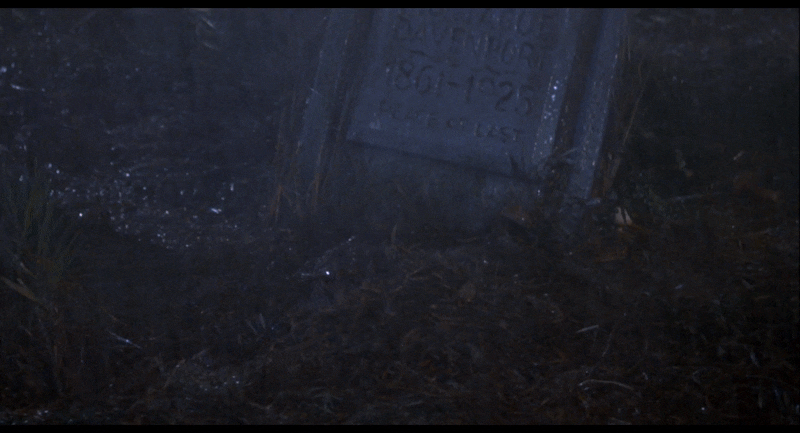
I've been doing Blogtober here for...actually I don't really know how long, because Tumblr's search is more busted than ever before, but I THINK I've been at it since 2015. This blog originally started as a repository for longform writing about whatever the hell is wrong with me, which I started to feel was unfair to inflict on the followers I had on main. Then I started doing some film writing here, kind of on a lark, and it became so consuming that I moved all my neurotic navel-gazing back to the other place because it felt so wrong to cross the streams or whatever. Blogtober began pretty casually with just a date, title, an image or two, and a few glib remarks, but pretty soon I wasn't able to keep doing it half-way, and every movie turned into a research project that resulted in a page or two (or more, in some cases) of this dense, turgid analysis that is probably not always a pleasure to read. But, this was a legitimate compulsion, a personal obligation that had nothing to do with likes or follows anything. There was no end game, it was just something I had to do.
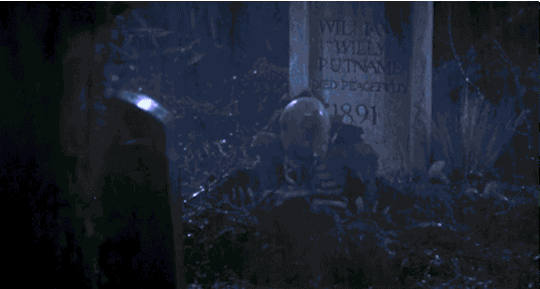
Recently on The Last Drive-In they showed Phil Tippett's astounding 30 year art project MAD GOD, which he made for about $150,000 with no way of knowing what kind of future it had (it made more than twice its budget back, not that that's the most important thing about it). During the compelling interview with Tippett I tweeted something to the tune of, like, what singular thing can you think of doing with 30 years and all your spare change, just to do it, if you had no way of knowing what would come of it? And the EOC of Fangoria*** quote-tweeted me with a comment like "Some of us know, because some of us have done it," and then all these professional horror guys chimed in to brag about their various heroic labors of love, and I found this very annoying for two reasons: First, because I posed the question as kind of a sympathetic gesture toward people who might not have had an immediate answer, and who might have found it meaningfully provocative. I didn't mean to create an opportunity for a bunch of self-actualized snobs to just dunk on people who are less sure of themselves (or who have fewer resources, let's face it!). And the second thing that bothered me about it was, I suddenly realized I actually DO do my obsessions. The only reason the Fangoria guy follows me on Twitter is that I'm a branch director for The Miskatonic Institute of Horror Studies, which takes a lot of work and care and makes practically no money, and one of the main reasons I earned that role is just my own self-directed exploration of the horror genre that I've been conducting for years and years, basically for love alone. Like nobody read my blog and offered me a book deal or anything like that--really nobody reads this blog PERIOD!--but the fact that I do this with passion, "like no one's watching" as they say, set me up with the thoughtfulness and discipline to be able to do other things when the time came.

So the things have been: For the past five years I've been working on a screenplay with someone you have definitely heard of, and there are actors you have definitely heard of who are bought in, and there are producers attached who have made things you've definitely heard of. And I mean who knows what will happen, without even considering the strikes and everything, entire movies have been shot and shelved without ever seeing daylight, anything is possible. But still, I did that, I continue to do it, and I am a better writer for it, and just a more knowledgeable and experienced person. I mean because I did that, I was ready for the opportunity I got to write the novelization of the movie SPLICE (this is like the one thing that's public already, that I can name), which sounds silly but it was an incredible, and incredibly personal experience for me, and I don't think filmmaker Vincenzo Natali would mind if I said how extremely kind and encouraging and, apparently, genuinely impressed he was. So that was huge, I'm excited for that to come out. And then because of my work for Miskatonic, and because of a certain self-directed, obsessive research project I spent the past few years on for no reason other than that I'm insane, I got the chance to record a commentary track for a new blu ray of [REDACTED, can't wait for this thing to get announced], which completely blew my mind. Then at the same time, because my work with Miskatonic got me the opportunity to introduce a certain movie at a certain major art institution last summer, I got commissioned to write THREE (3) booklets for upcoming blu rays of fascinating movies by someone I truly love, from a best-in-class company. It's been really funny in a way because when I was doing my kinda accidental art history degree, I was so depressed and immature and generally fucked up that it was a miracle they graduated me; my writing was "fun" maybe but not disciplined at all, the nicest person on my thesis board called my paper "a grand failure" and one of my advisors wouldn't even look at me once the entire time. That particular guy would be so, so mad if he read any of what I just turned in, which is, like, of actual quality. It turns out I can do what I was supposed to be doing in college, I was just too damaged and worthless at the time so sort it out. And I guess this is just how long it took me to figure out what I actually wanted to do with my time on earth. It took about 40 years.
EDIT: Fuck and then I ALSO was invited to be on a jury at the Brooklyn Horror Film Festival and I saw some amazing stuff and met some great people and I still can't believe it happened! That was so cool. I beg you all to watch RED ROOMS and VINCENT MUST DIE as soon as you possibly can, holy fucking shitballs.
But anyway I'm pretty sure those are all the things I can talk about for now, in my deliberately vague way. But that's what I've been up to when I would normally be doing Blogtober! I DID watch a Blogtober-appropriate movie every day though, and I WILL write them all up. The entries might be a little more brief than usual, and it sucks that I wasn't able to make it a daily ritual that ramps up to Halloween, but I didn't give up. Life is all about change and you never know what will happen to you, but Blogtober is forever.

***I actually really like the EOC of Fangoria specifically because he wrote this editorial about how he is constantly besieged by people who think Fango owes them a career just because they subtweet the brand and they're huge nerds and they're chronically online and own a ton of VHS tapes and shit. And I'm 100% sure this constant annoyance is why he's so bitchy. But the meat of the editorial was about how if you want a job like whatever you imagine Fangoria is supposed to give you, then you should be doing what you'd be doing there anyway. You should be writing anyway. You should be doing research anyway. You could ask your favorite B movie guys for interviews. You could start a website, or put out a zine. Try harder. Challenge yourself. Grow. You don't need anyone's permission to pursue your passion, and if you feel like you do, you might have to face the fact that it's not really your passion. The truth is that if you ever want to be acknowledged or god forbid paid for a talent like writing (or any kind of art), it's only going to happen if you're already doing it, all the time, with or without other people's money and praise. And ahem you should remain aware that even really talented people rarely subsist on talent alone--but still. In the words of Maya Angelou, who neither you nor I ever expected to have a cameo on my sleazy horror blog: Ain't nothing to it but to do it.
10 notes
·
View notes
Text
I have to cop to this because I feel like it’s the biggest obsessive thing wrecking my life
This has taken the place of every possible special interest I could have.
Here's the thing:
My "special interests" in the last 15 years or more, have predominantly been internal/in my head.
I'm obsessed with my own made-up social theories, meta, my own observations, shit from the inside of my head, etc... and I can write about it all endlessly online. Like I’m doing now!
Then I get started analyzing my own thoughts then analyzing the thoughts about those thoughts.
I can also spend all day just posting about myself and analyzing parts of my life.
I LOSE WHOLE DAYS. I can spend all day just posting. I can sit here, not eat all day, and just post. In fact the whole “whether ASD” thing with me has triggered the biggest spate of nothing but longposting and navel analysis that I’ve done in a long time.
When I get the urge to post something, if I indulge it, then one thought leads to another thought leads to another...
Thing is, if I didn't write online, I'd just talk the ear off of other people and I feel like just posting online is what siphons off the frenetic talk energy for me. Also I don’t feel like I can have these conversations with anyone IRL, online is my most fluid way to talk.
The way I put it to someone earlier, is that it's like having to sit on the toilet all day so that you don't poop your pants in public and end up socially ostracized. If I don't constantly post, I will TALK, and... it's my absolute most difficult sperg trait for other people to live with.
Also I feel like I am only "real" online. Like I'm not authentic with people I know IRL. And compartmentalizing my autistic self into the online world and only doing what I have to offline, has been my big way of coping. I would talk my partner’s ear off, rapidly and self-centeredly, without this.
I'm 48. I can't live like this forever. I have no real actual hobbies at present, I'm struggling with pushing my career forward, this is really fucktastic!
It's like there is an obsessive quality to this. I can dwell on the same topic for weeks in my posts, too, and restate some of the same points over and over.
I used to be an interesting person whose special interests were about *things* (such as medical science 2004-2009.) Who spent a lot of this writing/talking compulsion on writing fiction (prolifically.) Usually I had some topically related special interest coupled with writing a story that incorporated aspects of it.
I have not done this in ages, very little gets as much attention as my longposting does. And it's like I use up my executive function, and become exhausted, doing it.
It's not even just the internet, because i only hang out in a tiny corner of the internet. It's not even just zombie scrolling; I am fine with just checking my Facebook 2x a day or so.It's the energy I spend writing longposts on Reddit and Tumblr. It's not even enjoyable. And because it is my Special Interest basically - I can't even really absorb anything else.
I can't stop once I start. I can't keep myself from doing it again. I am beginning to hate that I do this.
But it's like I pour the most self-focused side of myself into these spaces so I can act normal the rest of the time and only very minimally bring myself up in conversation.
It's like... I use the internet as the repository for certain things I need, because I have me-specific needs that the rest of my world can't really meet.
Also, so many of my special interest focuses in the last 15 years (10 of those are the heaviest period of masking I've ever done in my life) are entirely focused within myself - my own self-referential theories, my own made up social taxonomies, etc - as well as sometimes getting deeply into “how to people”/self improvement spaces - which I can't even really share with other people IRL, or talk about. I feel like I am wasting my intelligence and creativity on this.
Somehow I fell down this weird navel-gaze rabbit hole years ago and can't get out.
That said, I don't feel like the people around me are particularly intellectual. I feel like every time I have an intellectually based special interest, or get obsessed with something I'm reading, I feel very lonely.
But I can always talk pop psychology and develop my weird theories that are basically mental masturbation and spread manifestoes across the internet basically and somehow that's less lonely? What's the logic?
It was this that made me start to believe that perhaps I wasn't autistic after all because I did not consider my internet addiction a special interest.
My most intense period of long-posting about mental masturbation, ever, began roughly at about the time when I began to think that instead I had ADHD, a diagnosis I got in 2008, 4 years after my Asperger diagnosis.
But it's not that I wasn't doing something autistic, I was doing something actually extremely autistic in several senses of the term.
And making up my own bullshit theories has a compulsive quality to it. Perhaps it's that I'm trying to order the world from inside my head. I don't know.
8 notes
·
View notes
Note
Lesbians don't oppress you or heterosexual trans women and lesbians are actually oppressed and killed by trans women (like Dana Rivers who shot and burned a black lesbian couple bc he had an unhealthy obsession with the fact lesbians don't fuck males). Your analysis is made up and shallow, just like your self indulgent navel gazing label party that has no material reality. Yeah, homosexuality defies spirituality. You're not gay. You're weak.
Wow I am crying 😢 😢😢 I am so weak I can’t even sit up long enough to puke at your ugly terf nonsense. You feel so comfortable with your transphobia that you intentionally misgendered a trans woman. I know the way the universe rejects you. Your spirituality lines up with new age republicans and liberalz 😂 your ugly words are just a curse on yourself. Sorry to my followers for having to read such horrible trans phobia and homophobia. These people will die one day, they will be screaming that we are the violent ones the whole way down, but so do white people when people of color come at them with machetes and torches. KISS MY ASS TERF xoxo
1 note
·
View note
Text
How Capitalism Drives Cancel Culture
Beware splashy corporate gestures when they leave existing power structures intact.
The delete button over a tumbrel
Story by Helen Lewis
JULY 14, 2020
GLOBAL
Tumbrels are rattling through the streets of the internet. Over the past few years, online-led social movements have deposed gropers, exposed bullies—and, sometimes, ruined the lives of the innocent. Commentators warn of “mob justice,” while activists exult in their newfound power to change the world.
Both groups are right, and wrong. Because the best way to see the firings, outings, and online denunciations grouped together as “cancel culture,” is not through a social lens, but an economic one.
Take the fall of the film producer Harvey Weinstein, which seems inevitable in hindsight—everyone knew he was a sex pest! There were even jokes about it on 30 Rock! But it took The New York Times months of reporting to ready its first story for publishing; the newspaper was taking on someone with deep pockets and a history of intimidating critics into silence. Then the story went off like a hand grenade. Suddenly, the mood—and the economic incentives—shifted. People who had been afraid of Weinstein were instead afraid of being taken down alongside him.
The removal of Weinstein from his company, and his subsequent conviction for rape, is a good outcome. But the mechanism it revealed is more morally ambiguous: The court of public opinion was the only forum left after workplace protections and the judicial system had failed. The writer Jon Schwarz once described the “iron law of institutions,” under which people with seniority inside an institution care more about preserving their power within the institution than they do about the power of the institution as a whole. That self-preservation instinct also operates when private companies—institutions built on maximizing shareholder value, or other capitalist principles—struggle to acclimatize to life in a world where many consumers vocally support social-justice causes. Progressive values are now a powerful branding tool.
But that is, by and large, all they are. And that leads to what I call the “iron law of woke capitalism”: Brands will gravitate toward low-cost, high-noise signals as a substitute for genuine reform, to ensure their survival. (I’m not using the word woke here in a sneering, pejorative sense, but to highlight that the original definition of wokeness is incompatible with capitalism. Also, I’m not taking credit for the coinage: The writer Ross Douthat got there first.) In fact, let’s go further: Those with power inside institutions love splashy progressive gestures—solemn, monochrome social media posts deploring racism; appointing their first woman to the board; firing low-level employees who attract online fury—because they help preserve their power. Those at the top—who are disproportionately white, male, wealthy and highly educated—are not being asked to give up anything themselves.
Perhaps the most egregious example of this is the random firings of individuals, some of whose infractions are minor, and some of whom are entirely innocent of any bad behavior. In the first group goes the graphic designer Sue Schafer, outed by The Washington Post for attending a party in ironic blackface—a tone-deaf attempt to mock Megyn Kelly for not seeing what was wrong with blackface. Schafer, a private individual, was confronted at the party over the costume, went home in tears, and apologized to the hosts the next day. When the Post ran a story naming her, she was fired. New York magazine found numerous Post reporters unwilling to defend the decision to run the story—and plenty of unease that the article seemed more interested in exonerating the Post than fighting racism. Even less understandable is the case of Niel Golightly, communications chief at the aircraft company Boeing, who stepped down over a 33-year-old article arguing that women should not serve in the military. When Barack Obama, a notably progressive president, only changed his mind on gay marriage in the 2010s, how many Americans’ views from 1987 would hold up to scrutiny by today’s standards? This mechanism is not, as it is sometimes presented, a long-overdue settling of scores by underrepresented voices. It is a reflexive jerk of the knee by the powerful; a demonstration of institutions’ unwillingness to tolerate any controversy, whether those complaining are liberal or conservative. Another case where the punishment does not fit the offense is that of the police detective Florissa Fuentes, who reposted a picture from her niece taken at a Black Lives Matter protest. One of those pictured held a sign reading who do we call when the murderer wear the badge. Another sign, according to the Times, “implied that people should shoot back at the police.” Fuentes, a 30-year-old single mother to three children, deleted the post and apologized, but was fired nonetheless.
In the second group, the blameless, lies Emmanuel Cafferty, a truck driver who appears to have been tricked into making an “okay” symbol by a driver he cut off at a traffic light. The inevitable viral video claimed that this was a deliberate use of the symbol as a white-power gesture, and he was promptly fired. Cafferty is a working-class man in his 40s from San Diego. The loss of his job hit him hard enough that he saw a counselor. “A man can learn from making a mistake,” he told my colleague Yascha Mounk. “But what am I supposed to learn from this? It’s like I was struck by lightning.”
The phrase is haunting—not being racist is not going to save you if the lightning strikes. Nor is the fact that your comments lie decades in the past, or that they have been misinterpreted by bad-faith actors, or that you didn’t make them. The ground—your life—is scorched just the same.
It is strange that “cancel culture” has become a project of the left, which spent the 20th century fighting against capricious firings of “troublesome” employees. A lack of due process does not become a moral good just because you sometimes agree with its targets. We all, I hope, want to see sexism, racism, and other forms of discrimination decrease. But we should be aware of the economic incentives here, particularly given the speed of social media, which can send a video viral, and see onlookers demand a response, before the basic facts have been established. Afraid of the reputational damage that can be incurred in minutes, companies are behaving in ways that range from thoughtless and uncaring to sadistic. For Cafferty’s employer, what’s one random truck driver versus the PR bump of being able to cut off a bad news cycle by saying you’ve fired your “white-supremacist employee”?
Let’s look at another example of how woke capitalism operates. In the aftermath of George Floyd’s death, and the protests that followed, White Fragility, a 2018 book by Robin DiAngelo, returned to the top of The New York Times’s paperback-nonfiction chart. The author is white, and her book is for white people, encouraging them to think about what it’s like to be white. So the American book-buying public’s single biggest response to the Black Lives Matter movement was … to buy a book about whiteness written by a white person.
This is worse than mere navel-gazing; it’s synthetic activism. It risks making readers feel full of piety and righteousness without having actually done anything. Buying a book on white fragility improves the lives of the most marginalized far less than, say, donating to a voting-rights charity or volunteering at a food bank. It’s pure hobbyism.
Why is DiAngelo’s book so popular? Again, look at economics. White Fragility is a staple of formal diversity training, in universities from London to Iowa, and at publications including Britain’s right-wing Telegraph newspaper, as well as The Atlantic. The client list on DiAngelo’s website includes giant corporations such as Amazon and Unilever; nonprofits such as the Bill & Melinda Gates Foundation, the Hollywood Writers Guild, and the YMCA; as well as institutions and governmental bodies such as Seattle Public Schools, the City of Oakland, and the Metropolitan Council of Minneapolis.
In the United States, diversity training is worth $8 billion a year, according to Iris Bohnet, a public-policy professor at Harvard’s Kennedy School. And yet, after studying programs in both the U.S. and post-conflict countries such as Rwanda, she concluded, “sadly enough, I did not find a single study that found that diversity training in fact leads to more diversity.” Part of the problem is that although those delivering them are undoubtedly well-meaning, the training programs are typically no more scientifically grounded than previous management-course favorites, such as Myers-Briggs personality classifications. “Implicit-bias tests” are controversial, and the claim that they can predict real-world behavior, never mind reduce bias, is shaky. A large-scale analysis of research in the sector found that “changes in implicit measures are possible, but those changes do not necessarily translate into changes in explicit measures or behavior.” Yet metrics-obsessed companies love these forms of training. When the British Labour leader, Keir Starmer, caused offense by referring to Black Lives Matter as a “moment” rather than a movement, he announced that he would undergo implicit-bias training. It is an approach that sees bias as a moral flaw among individuals, rather than a product of systems. It encourages personal repentance, rather than institutional reform. Bohnet suggested other methods to increase diversity, such as removing ages and photographs from job applications, and reviewing the language used for advertisements. (Men are more likely to see themselves as “assertive,” she argued.) Here is another option for big companies: Put your money into paying all junior staff enough for them to live in the big city where the company is based, without needing help from their parents. That would increase the company’s diversity. Hell, get your staff to read White Fragility on their own time and give your office cleaners a pay raise.
This, however, would break the iron law of woke capitalism—better to have something you can point to and say “Aren’t we progressive?” than to think about the real problem. Diversity training offers the minimum possible disruption to your power structures: Don’t change the board; just get your existing employees to sit through a seminar.
If this is a moment for power structures to be challenged, and old orthodoxies to be overturned, then understanding the difference between economic radicalism and social radicalism is vital. These could also be described as the difference between identity and class. That is not to dismiss the former: Many groups face discrimination on both measures. Women might not be hired because “Math isn’t for girls” or because an employer doesn’t want to pay for maternity leave. An employer may not see the worth of a minority applicant, because they don’t speak the way the interviewer expects, or that applicant might be a second-generation immigrant whose parents can’t subsidize them through several years of earning less than a living wage.
All this I’ve learned from feminism, where the contrast between economic and social radicalism is very apparent. Equal pay is economically radical. Hiring a female or minority CEO for the first time is socially radical. Diversity training is socially radical, at best. Providing social-housing tenants with homes not covered in flammable cladding is economically radical. Changing the name of a building at a university is socially radical; improving on its 5 percent enrollment rate for Black students—perhaps by smashing up the crazy system of legacy admissions—would be economically radical.
In my book Difficult Women, I wrote that the only question I want to ask big companies who claim to be “empowering the female leaders of the future” is this one: Do you have on-site child care? You can have all the summits and power breakfasts that you want, but unless you address the real problems holding working parents back, then it’s all window dressing.
Along with anti-racism and anti-sexism efforts, LGBTQ politics suffers a similar confusion between economic and social radicalism. The arrival of Pride month brings the annual argument about how it should be a “protest, not a parade.” The violence and victimization of the Stonewall-riot era risk being forgotten in today’s “branded holiday,” where big banks and clothing manufacturers fly the rainbow flag to boost their corporate image. In Britain and the U.S., these corporate sponsors want a depoliticized party—a generic celebration of love and acceptance—without tough questions about their views on particular domestic laws and policies, or their involvement in countries with poor records on LGBTQ rights. Some activists in Britain have tried to get Pride marches to stop allowing the arms company BAE to be a sponsor, given its arms sales to Saudi Arabia, an explicitly homophobic and sexist state. When Amazon sponsored last year’s PinkNews Awards, the former Doctor Who screenwriter Russell T. Davies used his lifetime-achievement-award acceptance speech to tell the retailer to “pay your fucking taxes.” That’s economic radicalism.
Activists regularly challenge criticisms of “cancel culture” by saying: “Come on, we’re just some people with Twitter accounts, up against governments and corporate behemoths.” But when you look at the economic incentives, almost always, the capitalist imperative is to yield to activist pressure. Just a bit. Enough to get them off your back. Companies caught in the scorching light of a social-media outcry are ike politicians caught lying or cheating, who promise a “judge-led inquiry”: They want to do something, anything, to appear as if they are taking the problem seriously—until the spotlight moves on.
Some defenestrations are brilliant, and long overdue. Weinstein’s removal from a position of power was undoubtedly a good thing. But the firing of Emmanuel Cafferty was not. For activists, the danger lies in the cheap sugar rush of tokenistic cancellations. Real institutional change is hard; like politics, it is the “slow boring of hard boards.” Persuading a company to toss someone overboard for PR points risks a victory that is no victory at all. The pitchforks go down, but the corporate culture remains the same. The survivors sigh in relief. The institution goes on.
If you care about progressive causes, then woke capitalism is not your friend. It is actively impeding the cause, siphoning off energy, and deluding us into thinking that change is happening faster and deeper than it really is. When people talk about the “excesses of the left”—a phenomenon that blights the electoral prospects of progressive parties by alienating swing voters—in many cases they’re talking about the jumpy overreactions of corporations that aren’t left-wing at all.
Remember the iron law of woke institutions: For those looking to preserve their power, it makes sense to do the minimum amount of social radicalism necessary to survive … and no economic radicalism at all. The latter is where activists need to apply their pressure.
0 notes
Text
Music I Liked in 2018
Every year I reflect on the pop culture I enjoyed and put it in some sort of order.
Are alternative and indie rock viable formats anymore? What do those labels mean in the year 2018? (What did they ever mean, really?) My favorite sonic moments of the year appear to be more out of step with the general populace and critical circles than ever before, and yet, I still go to a lot of concerts and seeing many of these acts live this year in sold-out venues proves that there is still an audience out there for guitar-based music. If that’s your thing (and no worries if it isn’t), give some of these records a shot.


15. Ruins / Tender Offerings EP – First Aid Kit
Sweden’s harmonic folk sister act returned at the beginning of the year with the accomplished Ruins. It may not have hit the heights of their career-best Stay Gold, but it still provides moments of sweeping beauty. However, it’s the 4-song collection of outtakes from the same sessions that cements this album cycle on my list: Tender Offerings is even more immediate and quietly affecting than its parent record.

14. Arthur Buck – Arthur Buck
Personal favorite singer/songwriter Joseph Arthur teamed up with former R.E.M. guitarist Peter Buck this year for a collaboration that hews more towards Arthur’s influence than Buck’s. That’s not a bad thing and this is a recent highlight of Arthur’s prodigious output. If the collaboration continues to foster such energy and inspiration, I hope it extends well into the future.

13. Malibu Nights – LANY
I’m not quite sure how to classify LANY; in my analysis they have as much in common with emo as pop music, and their synth-heavy sound doesn’t readily slot into rock formats. Regardless, I find their music easily approachable and their lyrics to cut with a similar sincerity as the likes of Jimmy Eat World. Malibu Nights is concise and consistent, two things that cannot be said of 2017’s self-titled full-length, and it is all the stronger for it.
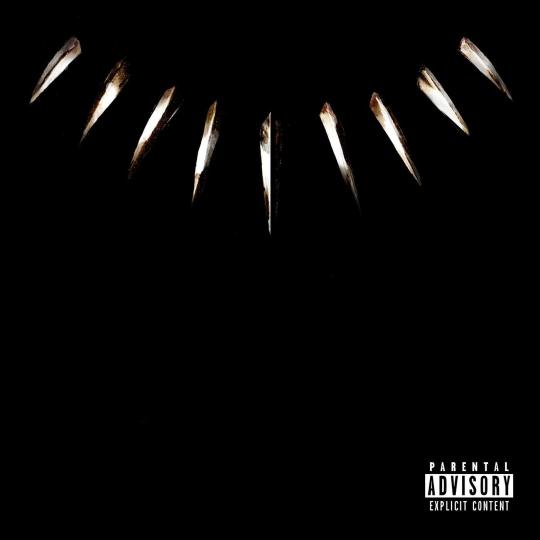
12. Black Panther the Album – Various Artists
Black Panther the Movie was one of the highlights of the year (see my film picks coming soon) and its companion soundtrack follows suit. A mixtape curated by and featuring Kendrick Lamar, this album of original material manages to form a cohesive unit as opposed to a collection of random tracks (i.e. last decade’s Spider-Man 3 soundtrack – which I actually liked, on the whole…). Wakanda forever!

11. Love Is Dead – CHVRCHES
The third LP from Scotland’s CHVRCHES was viewed as a letdown by much of the critical community, and as someone who ranked 2015’s Every Open Eye as that year’s favorite album, I would have to agree – to a point. Love Is Dead still has plenty of fantastic arena and festival-ready anthems to its credit and I don’t blame the trio for leaning into their pop side for this one. The album is incredibly front-loaded with “Graffiti,” “Get Out” and the Matt Berninger collab “My Enemy” coming in the first third, but there are strong moments all the way through and it’s definitely one of the most enjoyable listens of the year.

10. Wildness – Snow Patrol
After a 7-year hiatus, Snow Patrol returned with Wildness and I have to admit I was initially disappointed. However, I have found that with repeated listens this record has really grown on me. The emotional transparency of Gary Lightbody’s songwriting remains intact and you can feel his authenticity on songs like “Life On Earth,” “Heal Me” and “A Youth Written In Fire.” Definitely worth spending some time with.


9. [untitled] EP / [Untitled] – mewithoutYou
Philadelphia’s post-rock luminaries made a surprise return this year with some of their best work to date. An EP arrived in August and rather than a preview of October’s full-length release (only a single song is repeated, in a different version), it functions as a compelling work in its own right and finds the band embracing their more meditative and melodic tendencies. By contrast, the LP leans a bit more into the band’s harder edge – but not completely eschewing quieter moments – without sacrificing any of the lyrical depth or deft musicianship they are known for. It feels like a creative renaissance for a group soon to enter their third decade.

8. boygenius EP – boygenius
The only negative to this stellar collaboration between singer/songwriters Julien Baker, Phoebe Bridgers and Lucy Dacus is that it’s only six songs long. The artists are each given space to shine and when the harmonies kick in, it’s transcendent. Here’s hoping it’s not the last we hear from them as a trio.

7. Be More Kind – Frank Turner
A blazingly earnest call-to-arms for hope in the face of the current political and social landscape, Be More Kind is filled with rousing sing-alongs about decency and making a difference. “Don’t Worry,” “Little Changes,” “Brave Face” and the title track are among the most positive and affirming songs I’ve heard in recent memory, but it’s the rousing and reclaiming anthem “Make American Great Again” that marks my favorite moment on this near-perfect record.

6. Come Tomorrow – Dave Matthews Band
Old habits die hard, and even though my enthusiasm has waned since my obsessive high school & college days, I’ll still go to bat for much of Dave Matthews Band’s music. Their first studio album in 6 years is somewhat a catch-all of songs they’ve been playing live for a while but hadn’t recorded, and as such, is a bit overlong and slightly disjointed. Even so, there is a melancholic wistfulness that pervades many of the record’s highlights including “Samurai Cop (Oh Joy Begin),” “Virginia In the Rain” and “Come On Come On,” which rate with their best work.

5. Upside Down Flowers – Andrew McMahon in the Wilderness
Andrew McMahon’s latest effort is a very nostalgic look back at not just his early career in Something Corporate (“Teenage Rockstars”) but to his childhood as well (“Ohio,” “House In The Trees”). What could come across as navel-gazing or self-mythologizing instead becomes universal in its specificity and his most impactful work in years.
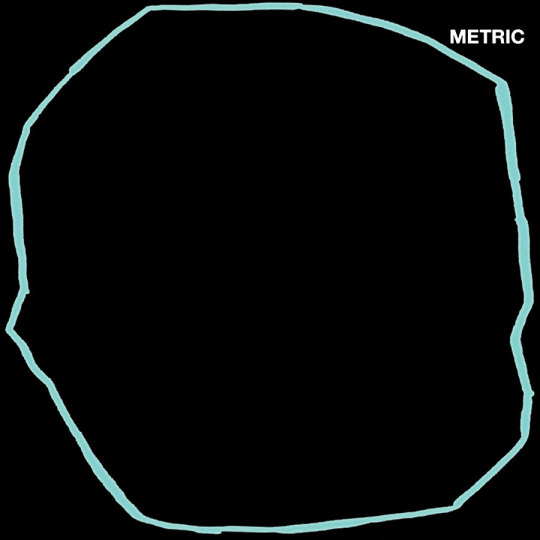
4. Art of Doubt – Metric
Every few years, Emily Haines and Co. grace us with an album of self-empowerment anthems, some of which make more of a personal impact than others. This year’s Art of Doubt was initially a sleeper that I find I keep returning to, discovering new layers of resonance each time. It now ranks alongside Fantasies and Synthetica in the band’s discography to me.

3. Mirror Master – Young the Giant
On their fourth record, Young the Giant deliver some of their most diverse and hooky tunes yet, including the Eastern-tinged “Superposition,” the introspectively moody “Glory” and the soaring anthem “Simplify.” While I’ve counted myself a fan of their previous work, this one coheres in a new way for me that is immensely rewarding.
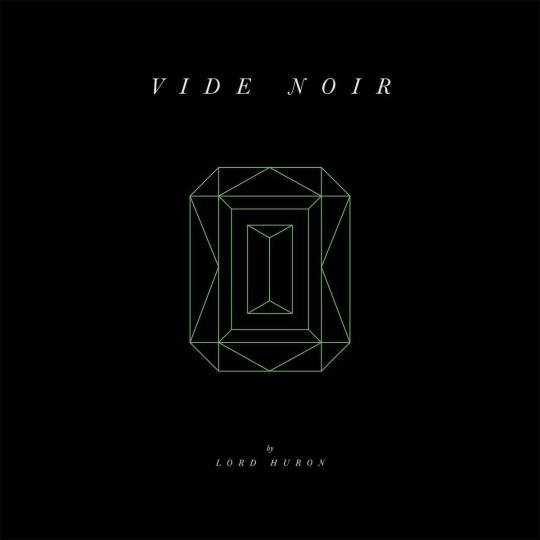
2. Vide Noir – Lord Huron
Lord Huron have yet to make a misstep and their third full-length proves their most sonically wide-ranging yet. From the driving energy of “Ancient Names, Pt. I,” to the old-timey crooning of “Wait by the River” to the blown-out guitar of “The Balancer’s Eye,” a range of styles are employed. Even with these varied modes, everything hangs together to create an atmospheric quest into darkness for meaning beyond this plane.
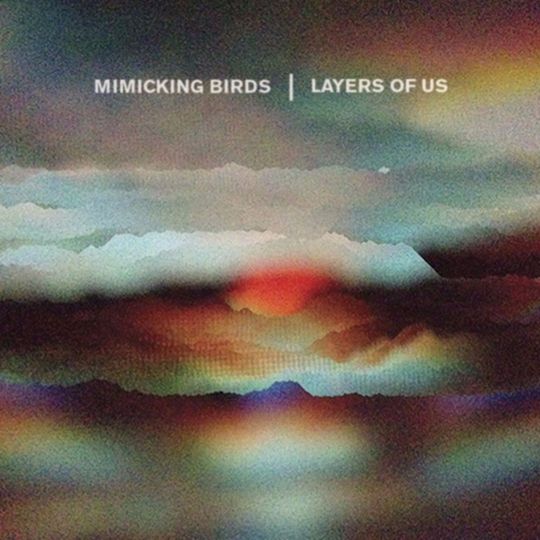
1. Layers of Us – Mimicking Birds
There is a spacious ambience to the latest from Portland’s Mimicking Birds, on which acoustic guitars are traded for splashes of mood-setting synthesizers and lyrics pondering humanity’s place in the cosmos and impact on the planet. Despite the dread and existentialism that permeates some tracks, I find a lot of beauty and hope shimmering through the record. It is by far the album I listened to the most in 2018 and perfect for the winter months (during the Winter Olympics I found myself daydreaming alternate realities where the gorgeous and haunting “Belongings” could soundtrack a gold medal figure skating performance).
Here’s a sampling of songs from each of these records if you want an easily-digestible mix:
Bonus! An additional mix of other singles, b-sides, covers and more from 2018 that I really like:
Double Bonus! 7 Best Live Performances I Saw in 2018:
7. U2 – Experience + Innocence Tour at the United Center, May 22nd
The companion to 2015’s Innocence + Experience Tour shared a stage and some common songs, but for the most part was a unique experience that stood on its own. Still telling a loose story of the band’s history through the lens of their Songs of Innocence and Songs of Experience albums, this arena tour centered around the newer material of the latter, which – being one of my favorite albums of 2017 – I was quite happy with. Closing the show with the same excellent two-song final sequence as that album, and a beautiful visual element that formed a bookend with the I+E Tour, was an inspired and moving choice.
6. Lord Huron – Pandora Presents The Stack at Concord Music Hall, September 20th
I was lucky to see Lord Huron twice this year during the Vide Noir tour cycle, and the second time was even better because A) it was a free event (put on by Pandora) that included free Sam Adams!, B) it was in a small venue and C) they reached all the way back to their first EP to end the night with “We Went Wild.” It took me right back to the night I was introduced to them at an intimate Lollapalooza pre-show at the Double Door in 2011, where this then-unknown band captivated me with their atmospheric percussion and guitar rhythms. They’ve yet to let go.
5. The National – Lollapalooza Aftershow at Metro, August 2nd
The National are at a point in their career where they headline festivals and play large theatres, so it’s rare to see them at a 1000-capacity venue like Chicago’s Metro anymore. Fortunately, the concert hall often hosts huge bands on Lollapalooza weekend for late night “aftershows” (which are always nearly impossible to get into) and I somehow scored tickets to the National’s performance there the night before they headlined the fest. It was great to see the band tear through a setlist spanning their whole career that was significantly different from what they did the following evening. The finale of an acoustic “Vanderlyle Crybaby Geeks” – at around 2am – was a beautiful communal moment.
4. Beck – Riot Fest, September 15th
I’ve seen Beck a few times over the years and I think his current setlist might be his best ever, a great mix of all his musical permutations (though missing any songs from Mutations…). Latest record Colors was one of my favorites of 2017 and that material was fantastic live alongside classics like “New Pollution,” “Loser” and “Girl.” The stage and lighting design were a lot of fun as well and provided a visually engaging and exciting backdrop. While the festival setting meant a truncated show, I won’t hesitate to catch him again whenever he returns to town.
3. Mew – Frengers 15th Anniversary Tour at Brooklyn Steel, October 14th
Mew are a Danish indie/prog rock/dream pop band that have a number of great albums to their credit. One of my favorites is Frengers, which I didn’t actually discover until a few years after it was released in 2003. Imagine my good fortune to discover one of the few US dates on its anniversary tour happened to coincide with my trip to New York this fall. Hearing the record performed in its entirety, from the opening guitar+drum salvo of “Am I Wry? No” to the final soaring cacophony of “Comforting Sounds” was a moment out of time in the best possible way.
2. boygenius – Thalia Hall, November 13th
A truly transcendent night of music that began with each of the collaborators – Lucy Dacus, Phoebe Bridgers and Julien Baker – playing her own masterful set, then all coming together for a finale of their entire EP. The vocal control evident in the contrast between the raw power unleashed on “Stay Down” and the restraint on the acoustic and un-miked closer “Ketchum, ID” proved these ladies really can do anything.
1. Frightened Rabbit – The Midnight Organ Fight 10th Anniversary Tour at Thalia Hall, February 16th
This is incredibly bittersweet, in light of frontman Scott Hutchison’s death in May. Scotland’s Frightened Rabbit played two nights in Chicago during a brief album anniversary tour, hosting what turned into an audience sing-along of Midnight Organ Fight in its entirety along with a mix of other favorites including “Holy,” “The Woodpile” and “The Oil Slick.” Losing such an honest and powerful voice this year hurt a lot. I’m so thankful I had one last evening of catharsis with him.
0 notes